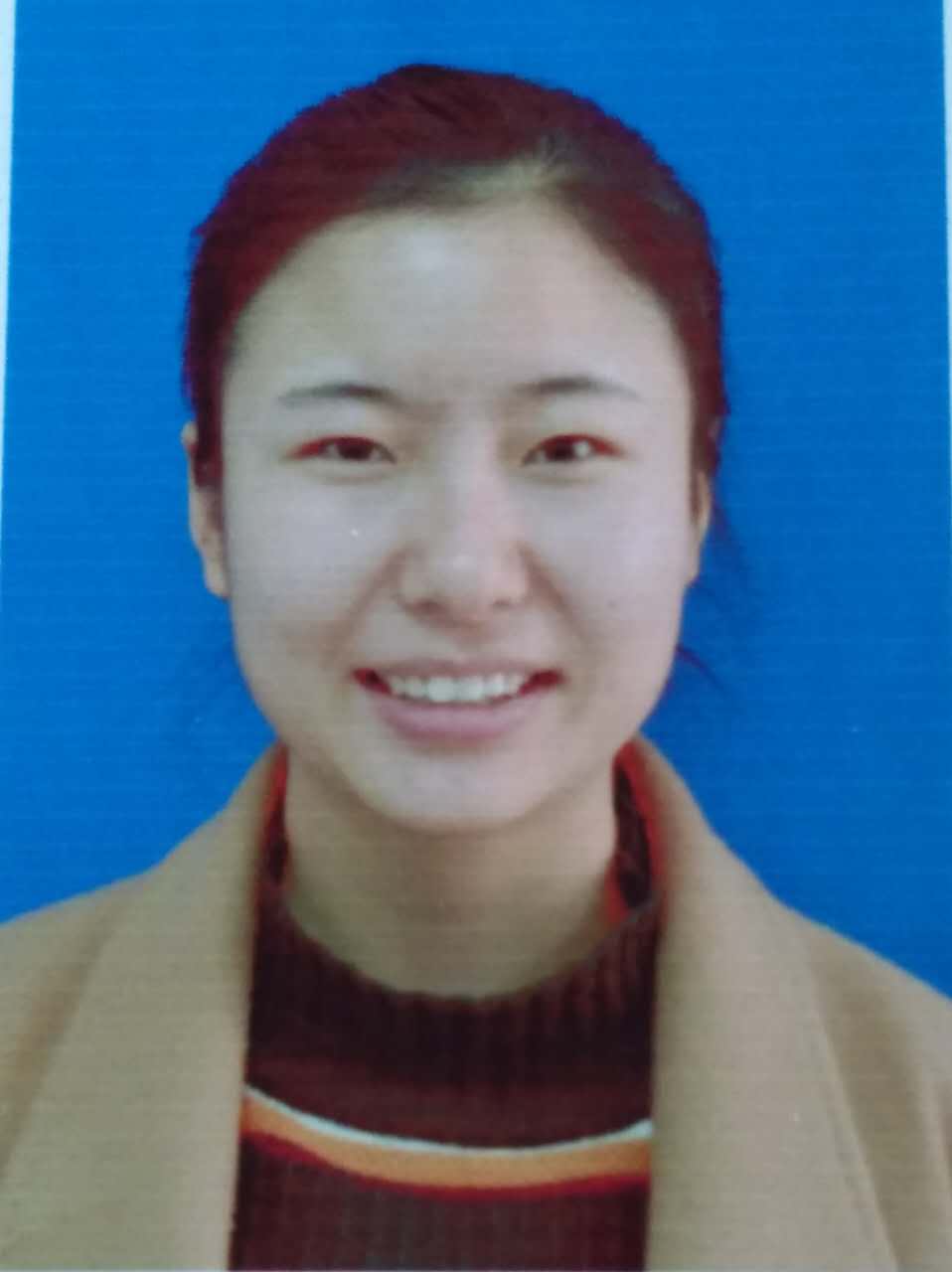课程设置
初一英语一对一辅导课程

课程辅导知识点
|
知识模块 |
权重 |
专题 |
知识点 |
等级 |
|
|
Unit 1 Where’s your pen pal from? |
国家,国籍和语言;询问并回答人们的居住地 |
4%中考权重(学期权重30%) |
短语 |
1 .be from = come from 来自于----2. live in 居住在---3. on weekends 在周末4 .write to sb = write a letter to sb 给某人写信;写信给某人5 .in the world 在世界上 in China 在中国6.pen pal 笔友 14 years old 14岁 favorite subject 最喜欢的科目7.the United States 美国 the United Kingdom 英国 New York 纽约8.speak English 讲英语 like and dislike 爱憎9.go to the movies 去看电影 play sports 做运动 |
★★ |
|
国家,人民、语言 |
1 Canada---- Canadian---- English / French |
★ |
|||
|
2 France------ French------French |
|||||
|
3 Japan------Japanese----Japanese |
|||||
|
4 Australia----Australian----- English |
|||||
|
5 the United States------ American---- English |
|||||
|
6 the United Kingdom---British----- Enghish |
|||||
|
重点句式 |
1 Where’s your pen pal from? = Where does your pen pal from/ |
★★★ |
|||
|
2 Where does he live? |
|||||
|
3 What language(s) does he speak? |
|||||
|
4 I want a pen pal in China. |
|||||
|
5 I can speak English and a little French. |
|||||
|
6 Please write and tell me about yourself. |
|||||
|
7 Can you write to me soon? |
|||||
|
8 I like going to the movies with my friends and playing sports. |
|||||
|
Unit 2 Where’s the post office? |
问路和指方向 |
8%中考权重(学期权重60%) |
情景交际 |
一. Asking ways: (问路) |
★★ |
|
1. Where is ……? (最近的)……在哪里? |
|||||
|
2. Can you tell me the way to ……? 你能告诉我去……的路吗? |
|||||
|
3. How can I get to ……? 我怎样到达……呢? |
|||||
|
4. Is there …… near here / in the neighborhood? 附近有……吗? |
|||||
|
5. Which is the way to ……? 哪条是去……的路? |
|||||
|
二.Showing the ways: (指路) |
|||||
|
1. Go straight down / along this street. |
|||||
|
2. Turn left at the second turning. |
|||||
|
3. You will find it on your right. |
|||||
|
4. You’d better take a bus. (You’d better+动词原形) |
|||||
|
词组 |
1. across from …… 2. next to…… 3. between……and…… among 表示位于三者或三者以上之间4. in front of…… in the front of…… 在……(内)的前部 5. behind…… 在……后面 6. turn left/ right 向左/右拐on the left/right of…… on one’s left/right 在某人的左/右边 7. go straight 8. down /along…… 沿着……(街道) 9. in the neighborhood=near here 10 welcome to…… 11. take /have a walk 12. the beginning of…… ……的开始,前端 at the beginning of…… 在……的开始,前端 in the beginning 起初,一开始 13. have fun=have a good time=enjoy oneself 玩得开心,过得愉快 14. have a good trip 旅途愉快15. take a taxi 坐出租车16. 到达:get to +地方 get here/ there/ home 到这/那/家arrive in +大地方 I arrive in Beijing.arrive at +小地方 17.go across 从物体表面横过 go across the street 横过马路 go through 从空间穿过 go through the forest 穿过树林18.on + 街道的名称。 Eg: on Center Street at + 具体门牌号+街道的名称 Eg: at 6 Center Street |
★★★ |
|||
|
重难点解析 |
1.enjoy doing sth 享受做某事的乐趣,喜爱做某事 I enjoy reading. 我喜爱读书。 到目前为止,我们学了两个特殊的动词finish和enjoy,都是要带 doing. I finish cleaning the room. 我扫完了这间屋子。2.hope to do sth 希望做某事 I hope to pass this exam. 我希望通过这次考试。 hope +从句 I hope tomorrow will be fine. 我希望明天将会晴朗。 (从句即是一个小句子,这个小句子又放在大句子中,从属于大句子,所以叫从句。如tomorrow will be fine是一个从句,它又放在I hope 的后面,形成句中有句。)3. if 引导一个表示假设的句子。 If I have much money, I will go to the moon. 如果我有许多钱,我就会去月球。 If you are hungry, you can buy some food in the supermarket.如果你饿了的话,你可以在超市买一些食物。四.本单元的反义词、近义词配对1 new—old 2 quiet--- busy 3 dirty--- clean 4 big---- small |
★★ |
|||
|
Unit 3 Why do you like koala bears? |
描述动物;表达看法 |
5%中考权重(学期权重50%) |
词组 |
eat grass eat leaves be quiet very shy very smart very cute |
★ |
|
play with her friends kind of South Africa other animals |
|||||
|
at night in the day every day during the day |
|||||
|
交际用语 |
1. Why do you like pandas? Because they’re very clever. |
★★ |
|||
|
2. Why does he like koalas? Because they’re kind of interesting. |
|||||
|
3. Where are lions from? They are from South Africa. |
|||||
|
4. What other animals do you like? |
|||||
|
I like dogs, too. Why? Because they’re friendly and clever. |
|||||
|
5. Molly likes to play with her friends and eat grass. |
|||||
|
6. She’s very shy. |
|||||
|
7. He is from Australia. |
|||||
|
8.He sleeps during the day, but at night he gets up and eats leaves. |
|||||
|
9.He usually sleeps and relaxes 20 hours every day. |
|||||
|
10.Let’s see the pandas first. |
|||||
|
11.They’re kind of interesting. |
|||||
|
12.What other animals do you like? |
|||||
|
13.Why do you want to see the lions? |
|||||
|
重点难点释义 |
1、kind of 有点,稍微 kind 种类 all kinds of |
★★★ |
|||
|
2、China n. 中国 Africa n. 非洲 |
|||||
|
3、friendly adj. 友好的,和蔼可亲的。 |
|||||
|
4、with prep. 跟,同,和…在一起;注意区别与and的用法;Play with 5、day和night ;in the day, during the day, at night。 |
|||||
|
6、leaf n. 叶子 复数形式为:leaves;wife—wives; wolf—wolves; knife—knives |
|||||
|
7、hour n. 小时;点钟 an hour |
|||||
|
8、be from 来自… be from = come from |
|||||
|
9、meat n. (食用的)肉much meat |
|||||
|
10、grass n. 草,much grass。 |
|||||
|
特殊疑问词 |
"what"、"who"、"which"、"when"、"where"、"how"、"how old"、"how many" |
★★ |
|||
|
Unit 4 I want to be an actor. |
职业 |
5%中考权重(学期权重50%) |
短语 |
1 want to do sth 想要作某事 |
★★★ |
|
2 give sb sth = give sth to sb 给某人某物 / 把某物给某人 |
|||||
|
3 help sb do sth 帮助某人作某事 Eg: I want to help my mother do some housework at home. |
|||||
|
4 help sb with sth 帮助某人谋事 Eg: I want to help my mother with some housework at home |
|||||
|
5 in the day 在白天 |
|||||
|
6 at night 在晚上 |
|||||
|
7 talk with/ to sb 和----谈话 |
|||||
|
8 be busy doing sth 忙于做某事 Eg: He is busy listening to the teacher. |
|||||
|
9 in a hospital 在医院l |
|||||
|
10 work/ study hard 努力工作 |
|||||
|
11 Evening Newspaper 晚报 |
|||||
|
重点句式 |
1 询问职业的特殊疑问词是what; 有三种主要句式 |
★★ |
|||
|
① What + is / are + sb? |
|||||
|
② What + does/ do + sb + do? |
|||||
|
③ What + is/ are + 名词所有格/ 形容词性物主代词 + job? |
|||||
|
2 People give me their money or get their money from me. |
|||||
|
3 Sometimes I work in the day and sometimes at night. |
|||||
|
4 I like talking to people. |
|||||
|
5 I work late. I’m very busy when people go out to dinners. |
|||||
|
6 Where does your sister work? |
|||||
|
7 then we have a job for you as a waiter. |
|||||
|
8 Do you want to work for a magazine? Then come and work for us as a reporter. |
|||||
|
9 Do you like to work evenings and weekends? |
|||||
|
10 We are an international school for children of 5-12. |
|||||
|
名词复数 |
1 policeman--- policemen 2 woman doctor----- women doctors 3 thief-----thieves |
★ |
|||
|
Unit 5 I’m watching TV |
现在进行时态 |
7%中考权重(学期权重50%) |
时态 |
现在进行时 |
★★★ |
|
短语 |
1.do one’s homework ;do housework |
★ |
|||
|
2.talk on the phone ;talk about…… ;talk to(with)sb |
|||||
|
3.write a letter ; write a letter to sb |
|||||
|
4.play with…… |
|||||
|
5.watch TV ;TV show |
|||||
|
6.wait for sb/sth ; |
|||||
|
7.some of…… |
|||||
|
8.in the first photo 在第一张照片里(介词用in,序数词前面有the); |
|||||
|
in the last photo 在最后一张照片里; a photo of one’s family 某人的家庭照片 |
|||||
|
9.at the mall 在购物街;at/in the library ;at/in the poo。 |
|||||
|
10.read a book = read books = do some reading看书\阅读 |
|||||
|
11.thanks for = thank you for |
|||||
|
词汇 |
family 家;家庭。强调"整体",是单数;强调"成员"时,是复数。 |
★★ |
|||
|
Unit 6 It’s raining! |
天气 |
7%中考权重(学期权重60%) |
短语 |
1 take photos/ pictures 照像 |
★★ |
|
2 take photos/ pictures of sb/ sth 给某人或某物照相 |
|||||
|
3 have a good time\have funhave a great tame 玩得愉快 |
|||||
|
4 work for sb / sth 为某人工作 |
|||||
|
Eg: Yuan Yuan works for CCTV’s Around The World show |
|||||
|
5 on vacation 度假 |
|||||
|
Eg: There are many people here on vacation. |
|||||
|
6 some----others--- one……the others……(两者之间) |
|||||
|
7 put on 穿上(动作) wear 穿着(状态) |
|||||
|
8 on the beach 在沙滩上 |
|||||
|
9 this group of people 这一群人 |
|||||
|
10. in this heat |
|||||
|
句型 |
1.How is the weather? 天气怎么样? |
★★★ |
|||
|
2.What are you doing? 你正在做什么? |
|||||
|
3.What are they doing? 他们在做什么? |
|||||
|
4.What is he doing? 他在做什么? |
|||||
|
5.What is she doing ? 她在做什么? |
|||||
|
交际用语 |
谈论天气的日常用语 |
★ |
|||
|
1 询问天气情况的句式 |
★★ |
||||
|
① How is the weather in Beijing? (How is the weather today?) |
|||||
|
② What’s the weather like in Beijing? ( What’s the weather like today?) |
|||||
|
2 回答上面问题的句式: |
|||||
|
①It’s + adj. (形容词) Eg: It’s windy. |
|||||
|
3 How’s it going (with you)? |
|||||
|
① Not bad. ② Great! ③ Terrible! ④ Pretty good. |
|||||
|
4 Thank you for joining CCTV’s Around The Word show. |
|||||
|
5 I am surprised they can play in this heat. |
|||||
|
6 Everyone is having a good time. |
|||||
|
7 People are wearing hats and scarfs. ① wear ② put on |
|||||
|
Unit7 What does he look like? |
描述人的外貌 |
4%中考权重(学期权重40%) |
短语 |
|
★ |
|
1 look like 看起来像.... |
|||||
|
2 curly /short/straight/long hair 卷/短/直发 |
|||||
|
3 medium height/build 中等高度/身体 |
|||||
|
4 a little bit 一点儿… |
|||||
|
5 a pop singer 一位流行歌手 |
|||||
|
6 have a new look 呈现新面貌 |
|||||
|
7 go shopping (do some shopping) 去购物 |
|||||
|
8 the captain of the basketball team 篮球队队长 |
|||||
|
9 be popular with sb 为---所喜爱 |
|||||
|
10 stop to do sth 停下来去做某事 |
|||||
|
11 stop doing sth 停止正在做的事情 |
|||||
|
12 tell jokes/ stories 讲笑话/ 讲故事 |
|||||
|
13 have fun doing sth 愉快地做某事 |
|||||
|
14 remember ( forget) to do sth 记得(忘记)做某事(没有做的) |
|||||
|
15 remember (forget) doing sth 记得(忘记)做过某事(已做) |
|||||
|
16 one of --- ---中的一个 |
|||||
|
重点句子 |
1 Is that your friend? No, it isn’t. |
★★★ |
|||
|
2 What does she look like? |
|||||
|
3 I think I know her. ( I don’t think I know her.) |
|||||
|
4 Wang Lin is the captain of the basketball team. |
|||||
|
5 She’s a little bit quiet. |
|||||
|
6 Xu Qian loves to tell jokes. |
|||||
|
7 She never stops talking. |
|||||
|
8 She likes reading and playing chess. |
|||||
|
9 I don’t think he’s so great. |
|||||
|
10 I can go shopping and nobody knows me. |
|||||
|
11 Now he has a new look. |
|||||
|
重难点解析 |
1 What does/ do +主语 + look like? 询问某人的外貌特征,看上去什么样? |
★★ |
|||
|
2 形容头发时, 可按照先长短,后曲直, 最后说颜色的顺序说。 |
|||||
|
3 one of + 名词复数 ,谓语动词要用"单三"形式。 |
|||||
|
4 不定代词做主语时, 谓语动词要用"单三"形式。修饰不定代词词,应该放在它的后面. |
|||||
|
5.He is …(通常为形容词,包括身高、体形等) |
|||||
|
He has…(通常为形容词修饰的名词,包括头发、五官) |
|||||
|
He wears…(穿、戴、留。可以是衣服、帽子、鞋子等,也可以是眼镜、手表、胡须) |
|||||
|
6.I don’t think…的用法 表达否定的看法 I don’t think she is good-looking. |
|||||
|
Unit 8 I’d like some noodles |
点餐 |
5%中考权重(学期权重40%) |
短语 |
1. beef and tomato noodles\noodles with beef and tomato 牛肉西红柿面 |
★★ |
|
chicken and cabbage noodles mutton and potato noodles |
|||||
|
tomato and egg noodles beef and carrot noodles |
|||||
|
2.would like to do sth want to do sth 想要作某事 |
|||||
|
3.what kind of noodles什么种类的面条 |
|||||
|
4.what size bowl of noodles什么大小碗型的面 |
|||||
|
5.a large\mediumsmall bowl of noodles 大\中\小碗的面 |
|||||
|
6.ice cream 冰淇淋 orange juice桔汁 green tea绿茶 RMB人民币phone number |
|||||
|
7. House of Dumplings\noodles饺子\面馆 Dessert House甜点屋 |
|||||
|
重点句型 |
1. What kind of vegetablesmeat drink food would you like? |
★★★ |
|||
|
I’d like …… |
|||||
|
I’d like chicken and cabbage noodles. |
|||||
|
2. What kind of noodles would you like? |
|||||
|
I’d like beef noodles. |
|||||
|
3. What kind of noodles would you like? |
|||||
|
I’d like chicken and cabbage noodles. |
|||||
|
4. What size bowl plate of noodles would you like? |
|||||
|
I’d like a large medium small bowl moodes. |
|||||
|
5. What size cake would you like? |
|||||
|
I would like asmall birthday-cake. |
|||||
|
重难点解析 |
1. would like 想要 (表示一种委婉的语气)其用法相当于want. |
★★ |
|||
|
would like + 名词 would like an apple (want an apple) |
|||||
|
would like to do sth ----Would you like to see the dolphins?----Yes, I’d like to. |
|||||
|
Would you like sth.? 是提建议的一种句型,如需用一些,用some而不用any. |
|||||
|
Yes, please./ All right./ Yes./OK./No, thanks. |
|||||
|
2. What kind of noodles would you like? |
|||||
|
kind 在此句中作"种类"讲,a kind of 一种,all kinds of 各种各样的。kind of 有几分 |
|||||
|
A cat is a kind of animal. |
|||||
|
There are all kinds of animals in the zoo |
|||||
|
The cat is kind of smart. |
|||||
|
3. Can I help you?你要买什么 |
|||||
|
肯定 Yes, please . I would like …… 否定 No, thanks. |
|||||
|
Unit 9 How was your weekend |
过去的发生的事情 |
8%中考权重(学期权重70%) |
短语 |
|
★ |
|
1. play +运动 play soccer play tennis play sports |
|||||
|
play the + 乐器 play the guitar |
|||||
|
play with…和某人\物玩耍X k b1 .c o m |
|||||
|
2.have +三餐 have breakferst lunch supper |
|||||
|
3. study for… clean the room visit sb stay at home |
|||||
|
have a party talk show |
|||||
|
4.go to the beach go to the movies go for a walk go to the mountains |
|||||
|
5.go shoppingdo some shopping go to the shop 买东西 |
|||||
|
6.last weekend\over the weekend 上周末 on weekends 每周末 |
|||||
|
7.on +某日+morningafternoonevening in + morningafternoonevening |
|||||
|
in+年\月\季节 at +时刻 last (next) month\yearweek |
|||||
|
8.what about+nv-ingpren=how about ……呢 |
|||||
|
9. spend the weekend last week 度过上周的周末 |
|||||
|
10.it’s time to do sth=it’s time for sth 该做么的时候了 |
|||||
|
11.look for 寻找..... |
|||||
|
时态 |
一般过去时 |
★★★ |
|||
|
Unit 10 Where did you go on vacation? |
过去的发生的事情 |
8%中考权重(学期权重70%) |
短语 |
1.go on vacation ; go to summer camp ;stay at home |
★★★ |
|
study for exams; Central Park; show sth to sb;help him find his father;walk back to… ;go shopping;the Palace Museum think of ; have fun doing sth;bus trip;the Great Wall Tian’an Men Square;a Beijing Hutong; make sb do sth;decide to do sth ; all day |
|||||
|
重点句子 |
1.Where did you go on vacation? I went to summer camp. |
★ |
|||
|
Where did they go on vacation? They went to New York City. |
|||||
|
Where did he go on vacation? He stayed at home. |
|||||
|
Where did she go on vacation? She visited her uncle. |
|||||
|
2. Did you/he/she/they go to Central Park? |
|||||
|
Yes, I/he/she/they did. |
|||||
|
No, I/he/she/they didn’t. |
|||||
|
3. How were the movies? They were fantastic |
|||||
|
4. have fun doing something 干某事有乐趣 |
|||||
|
= enjoy oneself doing something |
|||||
|
We have fun learning and speaking English . |
|||||
|
We enjoy ourselves learning and speaking English . |
|||||
|
我们学英语有很多乐趣 . |
|||||
|
5. find sb. doing sth. 发现某人在干某事 find sb. do sth. 发现某人干过某事 |
|||||
|
I find him reading the novel (小说). |
|||||
|
I found him go into the room . |
|||||
|
6. corner 角落,角,拐角处 |
|||||
|
in the corner 在角落里(指在建筑物里面) |
|||||
|
at the corner 在拐角处(指在建筑物外面或道路的拐角) |
|||||
|
My bike is at the corner . |
|||||
|
7. be lost 迷路了=get lost , lost (adj.) |
|||||
|
The girl was lost in the big city . |
|||||
|
8. help sb. (to) do sth.=help sb for sth 帮助某人干某事 |
|||||
|
He always helps us learn English |
|||||
|
9. make sb. do sth. 让/使某人干某事 let / have sb. do sth. do前不带to |
|||||
|
The movie makes me relaxing . |
|||||
|
Let the boy do his homework alone . |
|||||
|
10. feel+ adj. 感到... |
|||||
|
I feel hungry / tired /happy / excited |
|||||
|
11. decide to do sth. 决定干某事 |
|||||
|
They decided to go to Hainan on vacation . |
|||||
|
Uint 11 What do you think of game shows? |
给出看法;谈论喜好 |
7%中考权重(学期权重60%) |
|
TV shows(电视节目) |
★ |
|
soap opera sitcom a comedy an action movie a documentary a thriller cartoon Beijing Opera |
|||||
|
Animal World Tell it like it is Law Today game show |
|||||
|
CCTV News News in 30 Minutes Man and Nature |
|||||
|
Chinese Cooking Around China talk show Lucky52 |
|||||
|
Sports news sports show Culture China 2. write an article for the school magazine.给学校杂志写一篇文章 |
|||||
|
3. a thirteen - year - old boy.一个十三岁的男孩 |
|||||
|
4. wear colorful clothes.穿着颜色鲜艳的衣服 |
|||||
|
5. interview sb. 采访某人 in fact. 实际上 |
|||||
|
6. wear scarves. 戴着围巾 think of 想起,考虑到 |
|||||
|
重点句型 |
|
★★★ |
|||
|
1. What do you think of soap operas? I cant stand them. |
|||||
|
2. What do you think of sports shows? I dont mind them. |
|||||
|
3. What does she think of "Hilltop High"? She doesnt like it. |
|||||
|
4. What does Tony think of Tommy? He likes him. |
|||||
|
5. What do they think of Amanda? They love her. |
|||||
|
重难点解析 |
1. wear (v. 动词) "穿,戴,佩"。 |
★★★ |
|||
|
wear earrings 戴耳环 wear a dress 穿连衣裙wear a watch 戴手表 |
|||||
|
wear a beard 蓄胡子wear long hair 留长发 |
|||||
|
2. think "想,考虑,思索"(v. 动词) |
|||||
|
think of "考虑";"有...的看法",有时等于think about. |
|||||
|
think highly of sb. /sth. 对某人或某物评价甚高 |
|||||
|
3. too与either的区别;而either"也不" 4. a thirteen - year - old boy |
|||||
|
a five - month - old baby 一个五个月大的婴儿 |
|||||
|
5. enjoy (v. 喜爱,享受) |
|||||
|
enjoy后面接名词、代词或动名词,注意与like/ love用法的区别。like/ love还可以接动词不定式(to do)。 |
|||||
|
6. mind 表示"介意,反对"的意思时,通常用在疑问句、否定句中。 |
|||||
|
Would you mind opening the window?请你打开窗子好不好? |
|||||
|
He doesnt mind the cold weather at all.他一点都不在乎寒冷的天气。 |
|||||
|
多用于以下句型:(表示请求或征求意见)后接动名词/名词/代词。 |
|||||
|
Would you mind (doing) ...?Do you mind (doing) ...? |
|||||
|
7. stand 表示忍受(多用于否定句、疑问句)新 课 标第 一网 |
|||||
|
He cant stand the hot weather.他忍受不了炎热的天气。 |
|||||
|
Can you stand the pain?你忍受得了疼吗? |
|||||
|
8. What do you think of ...? 你认为...怎么样?(谈论对某事物的喜好程度)可选择的回答有: |
|||||
|
(1)I like it.(2)I dont mind it. |
|||||
|
(3)I dont like it.(4)I cant stand it. |
|||||
|
(5)I like it very much.(6)I love it. |
|||||
|
(7)Its beautiful.(8)Theyre fantastic |
|||||
|
Unit 12 Dont eat in class. |
谈论规则 |
5%中考权重(学期权重40%) |
短语 |
|
★★ |
|
1. in class 在课上 2. on school nights 在上学的晚上 3. school rules 校规 |
|||||
|
4. no talking 禁止交谈 5. listen to music 听音乐 6. have to 不得不 |
|||||
|
7. take my dog for a walk 带狗去散步 8. eat outside 在外面吃饭9. in the hallway 在走廊上 10. wear a uniform 穿制服 11. arrive late for class 上学迟到 12. after school 放学后 17. be in bed 在床上 13. practice the guitar 练习弹吉它 14. in the cafeteria 在自助食堂里15. meet my friends 和我朋友见面 16. by ten oclock.十点之前 18. the Childrens Palace 少年宫 19. help my mom make dinner 帮助我妈做饭 |
|||||
|
重点句型 |
1.Don’t arrive late for school=Don’t be late for school |
★★★ |
|||
|
2.Don’t fight = |
|||||
|
3.Don’t listen to music in the classroom. |
|||||
|
4.Don’t run in the hallways |
|||||
|
5.Don’t smoke .It’s bad for your health. |
|||||
|
6.Don’t play cards in school |
|||||
|
7.Don’t talk in class |
|||||
|
8.Don’t watch TV on school nights. |
|||||
|
9.Don’t sleep in class. |
|||||
|
10.Don’t play sports in the classrooms. |
|||||
|
11.Don’t sing songs at night. |
|||||
|
12.Don’t talk when you eat. |
|||||
|
13.Don’t wear hats in class. |
|||||
|
14.Do homework by 10:00. |
|||||
|
15.Clean your house! |
|||||
|
16.Make the bed. |
|||||
|
17.Can we ……? Yes ,we can . No, we can’t. |
|||||
|
18.Do you have to wash your clothes? Yes, I do./No, I don’t. |
|||||
|
情态动词 |
can的用法 |
★★ |
|||
|
祈使句 |
四种用法 |
★ |
|||
|
重难点解析 |
1.hear,listen和sound都有"听"的意思,但三者是有区别的。 |
★★★ |
|||
|
2.He is in bed for 10 years. 他卧床10年了。 |
|||||
|
3. arrive late for 与be late for 意思相近,"迟到"Dont arrive (be)late for school. 上学别迟到。 |
|||||
- 百名老师任选
- 近千家长的选择
- 填写即可获得1对1公益诊断
教学模式
更多+01.精准的模型分析
02.定制的学习方案
03.科学的学习流程
04.即时的反馈系统
05.细致的学习跟踪
06.丰富的附加价值
07.贴心的专业呵护
金牌名师
更多+
高中边老师
学科:数学辅导
年级:高中
教课特点:生动 | 课堂气氛活跃
多年从事初中数学教学,1对1教学经验丰富,年度多带学生最高提分80分。专业基础牢固,性格开朗
初中郝老师
学科:物理辅导
年级:初中
教课特点:深受学生喜爱|教学思路清楚
郝老师秉承中西结合的教育理念,在教学当中除了知识的传授以外,高度注重对学生学习兴趣,学习习惯和学习思维的培养。
小学张老师
学科:英语辅导
年级:小学
教课特点:细心 | 负责 | 生动
熟悉人教版小学及初中教材,小升初及中考知识点。针对各层次学生能专项,针对不同学生实际情况进行授课,完成辅导计划,并和学生建立良好的师生关系。从细节把握学生必备知识,一步步增加学生基础
明星学员
更多+优秀学员-王*辰
高中三年级--王*辰
辅导科目:英语、数学、语文
辅导效果:王*辰经过学习中心的老师辅导
满意度:★★★★★
所在校区:海悦国际校区
全国免费咨询电话:400-791-0311
个性化分析
该生刚到中心时该生完全没有学习兴趣,并且在学习习惯和学习方法上面也十分欠缺优秀学员-周*
高中三年级--周*
辅导科目:英语、数学
辅导效果:辅导后该生成绩提升
满意度:★★★★★
所在校区:海悦国际校区
全国免费咨询电话:400-791-0311
个性化分析
该生学习动机较强,学习领悟力好,上进心强,但是缺乏脚踏实地的刻苦精神。优秀学员-封*
高中三年级--封*
辅导科目:数学、物理
辅导效果:封*宁的数学物理成绩得到了
满意度:★★★★★
所在校区:海悦国际校区
全国免费咨询电话:400-791-0311
个性化分析
该生高一和高二成绩都不错,到了高三以后,学习抓不住重点
















